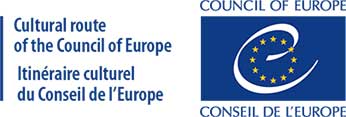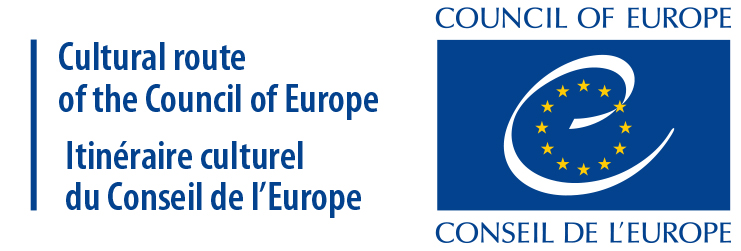
University Network for Cultural Routes Studies
Eligibility Criteria
Context
The Cultural Routes of the Council of Europe programme, and more particularly the Enlarged Partial Agreement on Cultural Routes of the Council of Europe (EPA), which benefits from the support of the European Institute of Cultural Routes, the technical agency of the Programme, is involved since its creation in cooperation actions with different higher educational institutions. Consequently, the “University Network for Cultural Routes Studies” was created in 2012 in order to facilitate exchanges between the Cultural Routes of the Council of Europe programme, universities active in the field of preservation and promotion of cultural heritage and certified Cultural Routes.
The University Network aims to encourage academic research on Cultural Routes and related issues, encourage students to carry out their academic research on the Programme, apply jointly to European Funds, participate in the annual activity programme of the Programme and offer scientific advice when required. It also constitutes a platform for the exchange and mobility of students and researchers.
Today, 10 universities are members of the “University Network for Cultural Routes Studies” :
- University of Luxembourg (Luxembourg)
- IREST, University Paris I Panthéon-Sorbonne (France)
- LABPACT, University of Barcelona (Spain)
- CAST, University of Bologna (Italy)
- Ironbridge International Institute, University of Birmingham (United Kingdom)
- INTOUR, University of Bedfordshire (United Kingdom)
- IPAC, Laval University (Canada)
- Saint Petersburg State University of Culture and Arts (Russian Federation)
- Compostela Group of Universities
- USI, Università della Svizzera Italiana (Switzerland)
Eligibility
Adhesion to the University Network for Cultural Routes Studies is open to:
- Universities
- University centers
- University networks
- Other higher educational and research institutions
Eligibility Criteria
1. Nature of the Institution
The applicant Institution must suit the following characteristics:
- Have an academic, public or private and non-profit nature.
- Have a certified legal personality.
- Be recognized by a competent national body or equivalent.
- Have an explicit mission statement and educational objectives, clearly expressed and widely disseminated and accepted, which are suitable for a university and demonstrate the institution's commitment to:
- Teaching and other forms of knowledge transmission;
- Research, scholarly activity, academic research and development of knowledge;
- Community service
- Have as a fundamental teaching mission the provision of university-level training where the majority of the programs offered are academic in nature.
- Be qualified to issue university degrees in the country of origin.
- Existence of a teaching staff specific to the institution.
- Be established in one of the countries participating in the Bologna Process
2. Geographic scope
- The applicant Institution must be located in one of the member State of the Council of Europe, and particularly in one of the member States of the EPA.
- The network enlargement should take into account geographic coverage and the involvement of Universities based in Countries not yet represented, in order to ensure a truly international approach to this collaboration.
3. Academic and scientific activities
The applicant Institution must develop the following activities:
- Provide teachings in one or more of the following fields:
- Heritage
- Tourism
- Urban and territorial planning
- Geography
- Heritage, cultural, tourism, territorial management, etc.
- Local development
- Governance and participation
- Cultural cooperation / political studies
- History
- New technologies
- Heritage and/or tourism economics
- Heritage and/or tourism law
- Issue diplomas at Bachelor, Master and/or Doctorate level in one or more of the abovementioned academic fields.
- Carry out research activities in one or more of the abovementioned academic fields.
- Carry out or be interested in conducting interdisciplinary research activities on certified Cultural Routes of the Council of Europe, such as field workshops or other modules conceived for students and allowing them to have a direct approach in the framework of an international cultural Programme.
- Have or being interested in creating teaching programmes with specific modules on Cultural Routes and in particular those of the Council of Europe.
- Cooperate or be interested in cooperating with national or foreign higher educational institutions on the theme of Cultural Routes.
- Participate in or be interested in setting up exchanges, researches and internship projects for students and researchers on the theme of Cultural Routes.
- Help setting up and actively participate in biennial Conferences organized by the Program through scientific contributions and support for students wishing to present their research on this occasion.
European Institute of Cultural Routes (EICR)
Abbaye de Neumünster
Bâtiment Robert Bruch
28, rue Münster, L-2160 Luxembourg
Grand-Duché de Luxembourg
Tel: +352 24 12 50
[email protected]





